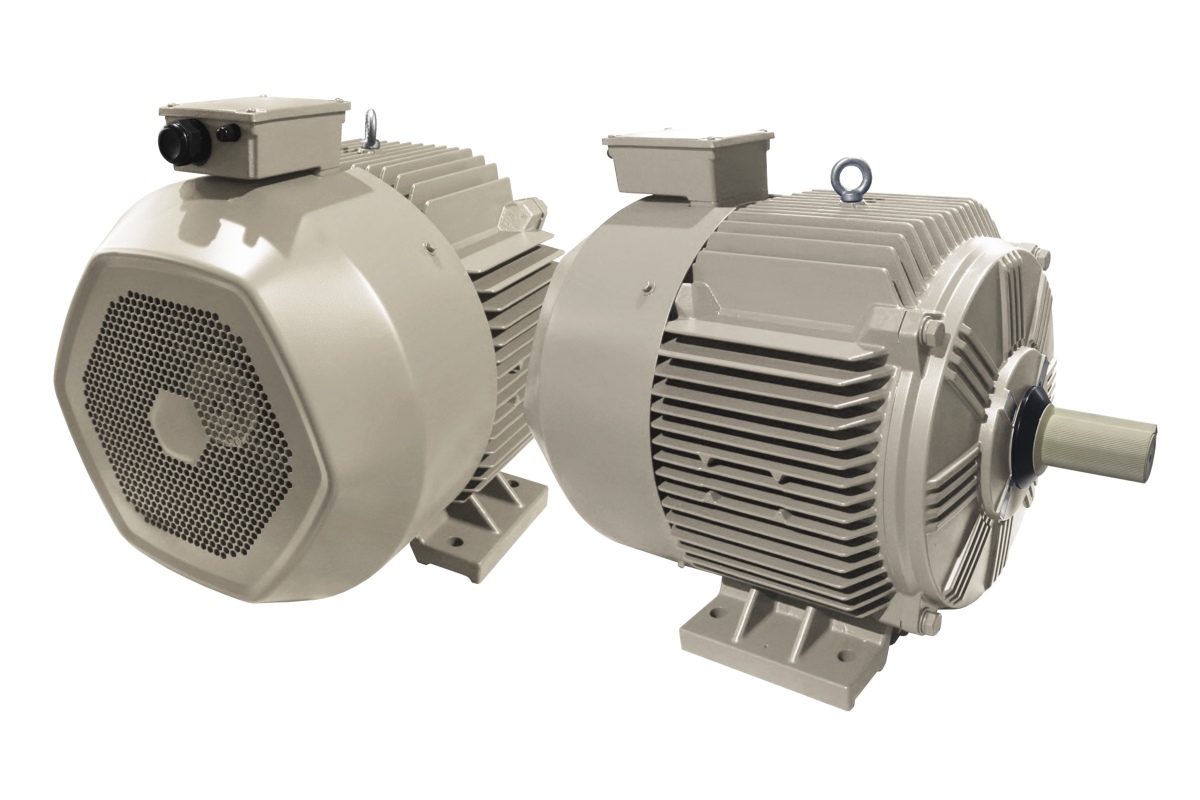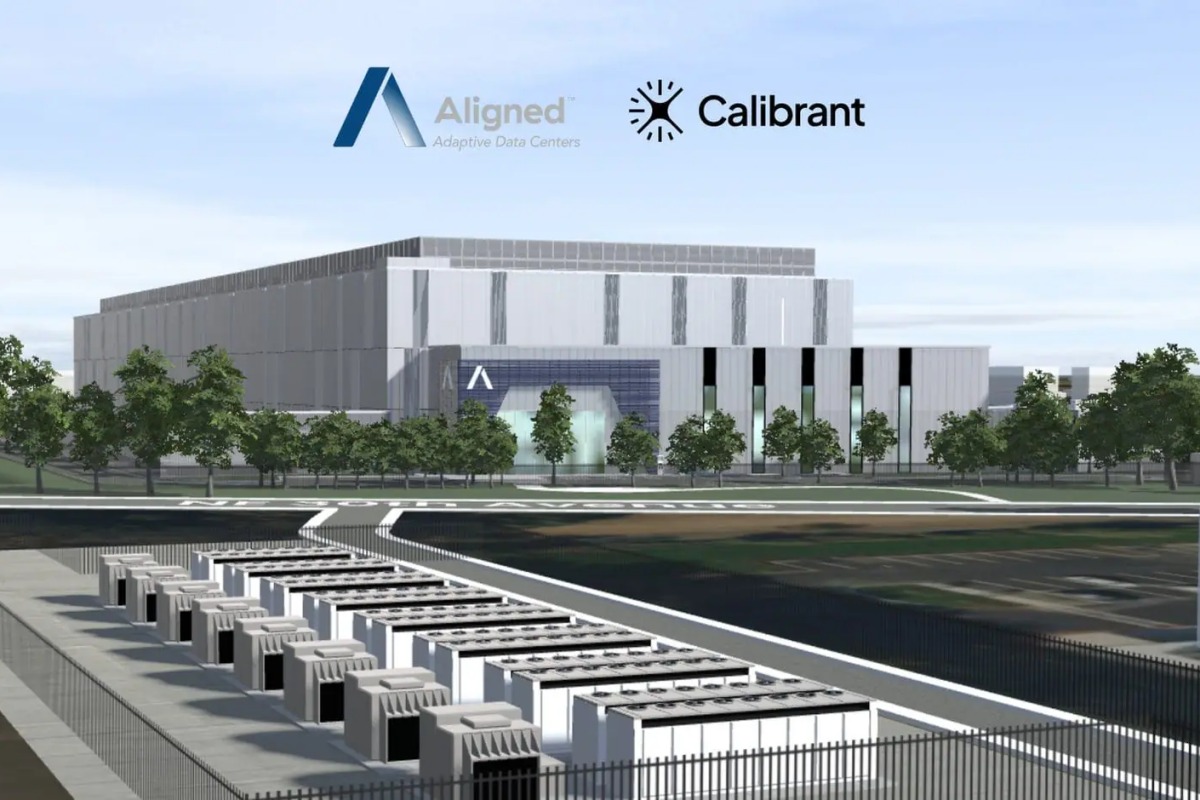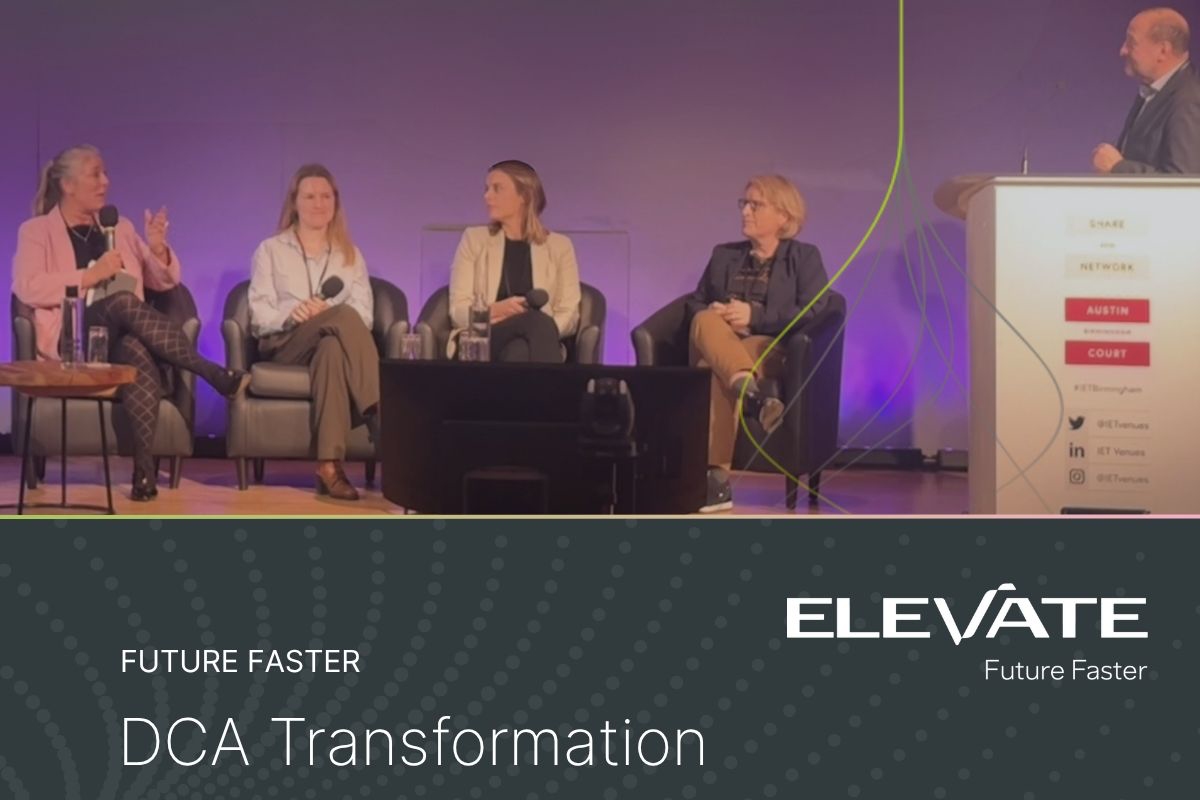News
Data Centre Infrastructure News & Trends
Innovations in Data Center Power and Cooling Solutions
Products
Wolong introduces efficient motors for DC cooling applications
Wolong Electric America, a developer of industrial motor and drive technology, has introduced its Permanent Magnet Direct Drive (PMDD) motors, highlighting their ability to improve energy efficiency and reduce heat generation in high-demand environments such as data centres.
Designed to operate without belts or sheaves, PMDD motors use a direct drive system that reduces mechanical complexity and common failure points, improving reliability and minimising maintenance requirements.
The approach should also reduce mechanical stress and radial load on bearings, contributing to a longer service life.
Lower heat output and energy use in data centres
At the core of each motor is a rare earth magnet design that delivers stronger magnetic fields in a compact form factor.
This aims to enable higher efficiency and cooler operation compared with traditional induction motors, which would be a key advantage in temperature-sensitive environments such as data centres, where controlling internal heat and power consumption are constant priorities.
The motors are operated via a variable frequency drive (VFD), enabling precise speed control, smooth acceleration and deceleration, and reduced electrical strain on supporting systems.
A 4:1 turndown ratio allows the motors to maintain torque and efficiency - including at low speeds - supporting variable airflow demands within cooling systems.
Wolong Electric says its PMDD motors can be integrated directly into fan assemblies, reducing overall system losses and eliminating inrush current at startup.
With reported efficiency improvements of around 20% over conventional induction motors, the design should contribute to measurable reductions in both energy use and waste heat.
Flexible configurations for critical environments
Wolong Electric says the PMDD motors can be tailored to specific applications, including data centre cooling systems, refineries, and OEM equipment such as heat exchangers.
The motors are designed to operate at lower temperatures and with reduced maintenance demands, supporting long-term reliability and stable thermal management across facility operations.
The company’s design approach hopes to enable easy integration with OEM and packaged system configurations, helping operators meet efficiency goals while aligning with evolving energy standards.
Joe Peck - 29 October 2025
Data Centres
Events
News
Sponsored
Datacentre Innovation Series 2025 announced
In an age where digital transformation is pivotal for every industry, TraiCon Events says it is proud to announce the Datacentre Innovation Series 2025, taking place on 10 December 2025 at the Park Hotel in Hyderabad, India.
This premier event will focus on the future of data centres, exploring new technologies, sustainability practices, and cutting-edge innovations that are reshaping the industry.
Transforming India’s data centre landscape
India’s data centre industry is on the brink of a major revolution, driven by cloud adoption, data sovereignty, AI, and the growing need for digital infrastructure.
With a rapidly expanding digital economy and increased reliance on cloud computing, India is investing heavily in modernising and expanding its data centre ecosystem.
The focus is on scalability, resilience, sustainability, and ensuring that data protection and privacy are at the forefront.
The Datacentre Innovation Series 2025 will delve into the most pressing topics such as edge computing, data centre automation, 5G infrastructure, green data centers, AI-driven operations, and cybersecurity.
Who should attend?
This high-level strategic forum will bring together more than 250 senior-level professionals, government officials, industry experts, technology innovators, and decision-makers to discuss the future of India’s data infrastructure and the rapidly evolving landscape of digital transformation.
Attendees will include:
• Data centre operators & providers• Cloud service providers (CSPs)• Telecom operators• Government & regulatory officials• Technology innovators & solution providers• Data security & privacy experts• Sustainability leaders• Data infrastructure investors• Designers & engineers of data centres• Academia & research institutions• Telecom & IT analysts
Why this series and why now?
India’s data centre industry is witnessing unprecedented growth, with an increasing focus on sustainability, cloud-first strategies, and the future of edge computing.
As the nation drives towards digital India initiatives and addresses data sovereignty concerns, it’s essential to stay ahead of the curve with the latest technologies and best practices.
With the rise of 5G, AI, and IoT, the demand for robust, scalable, and secure data centres is higher than ever before.
The Datacentre Innovation Series 2025 will equip professionals with the knowledge and strategies required to tackle the evolving challenges and ensure that India’s data centre ecosystem is ready for the demands of the future.
Joe Peck - 28 October 2025
Data Centre Infrastructure News & Trends
Enterprise Network Infrastructure: Design, Performance & Security
News
GNM-IX launches new PoP in Bucharest
GNM-IX, a Dutch internet exchange and backbone operator, has announced the launch of a new point of presence (PoP) in Bucharest, Romania, located in NXDATA-1, one of the country’s major carrier-neutral data centres and a digital gateway to Southeast Europe.
This marks GNM’s first presence in Romania, expanding the company’s distributed interconnection platform into another region of Europe.
The new Bucharest site provides access to GNM’s core connectivity services - internet exchange (GNM-IX), VLAN-based interconnections, and global IP Transit - enabling Romanian operators and content networks to exchange traffic locally and optimise international routes through GNM’s multi-terabit platform.
For existing GNM members, the new PoP should strengthen connectivity across Southeast Europe, creating additional redundancy and more efficient routing options towards the Balkans, Central Europe, and beyond.
Alex Surkoff, Business Development Director at GNM, comments, “Our goal is to make high-performance connectivity available wherever networks grow.
“Expanding to Bucharest enhances our distributed architecture and gives both local and international operators new ways to interconnect - staying local in traffic exchange while remaining part of the global internet fabric.”
GNM-IX now has more than 10 Tbps of aggregated traffic and 650+ connected networks.
For more from GNM, click here.
Joe Peck - 28 October 2025
Data Centre Business News and Industry Trends
Insights into Data Centre Investment & Market Growth
News
Stellanor acquires eight DCs from Redcentric
Data centre operator Stellanor Datacenters, backed by a fund managed by global investment manager DWS, has announced the acquisition of eight strategic data centre sites from Redcentric, currently serving approximately 450 clients.
The move marks a milestone in Stellanor’s broader strategy to be a major platform of regional data centres serving national and international enterprises as well as service providers with a need for wholesale and AI inference data centre capacity.
Stellanor says it is creating a new generation of regional data centres, designed for proximity, performance, sustainability, and accessibility.
As digital services become increasingly critical to business operations, the demand for secure, scalable, and locally hosted infrastructure is accelerating. Enterprise adoption of generative AI and real-time analytics will significantly accelerate this trend, particularly at the edge.
Stellanor believes its growing network of urban and near-urban facilities are well positioned to meet the requirements of enterprise and AI-driven workloads of customers across the country.
Steve Scott, CEO at Stellanor, argues, “We’re building infrastructure for the future, where data is generated, processed, and protected at the edge. Our goal is to set a new benchmark for high-performance, community-conscious data centres in Northern Europe.
"Our focus is always on our customers, who will receive the highest standard of service. We look forward to growing our business alongside them and serving their future colocation needs.”
Strategic UK expansion
The newly acquired sites are strategically located in London, Reading, Cambridge, Woking, Gatwick, Byfleet, and West Yorkshire.
The sites are seen as attractive given their high-density colocation capabilities, security standards, and sustainable operations powered by 100% renewable energy.
Aparna Narain, Partner at DWS, comments, “The acquisition of RDC by Stellanor represents a transformative step in expanding our UK footprint to ten, high-quality, strategically located assets with 36MW of secured grid capacity and a blue-chip customer base.
“We see significant long-term value in building resilient, scalable, and sustainable infrastructure that supports the UK’s digital economy.”
With this acquisition, Stellanor will operate ten data centres across the UK, with plans for continued expansion across the UK and Nordics, focusing on service quality.
Joe Peck - 27 October 2025
Data Centre Infrastructure News & Trends
Innovations in Data Center Power and Cooling Solutions
News
Aligned, Calibrant to deploy on-site battery storage
Aligned Data Centers (Aligned), a technology infrastructure company, and Calibrant Energy (Calibrant), a US provider of on-site energy systems, have announced a new energy solution to address an urgent constraint to the data centre industry: access to grid power.
The announcement comes as the rapid growth of AI and advanced computing fuels unprecedented power demand, accelerating the need to increase load service and ensure reliable access to grid power.
Under the agreement, Calibrant will deliver a 31MW / 62MWh battery energy storage system (BESS) at Aligned’s data centre campus in the Pacific Northwest.
The on-site system, planned to be operational in 2026, will enable the facility to come online and scale operations years earlier than would be possible with traditional utility upgrades.
Calibrant and Aligned have been partnering with a regional utility in the Pacific Northwest since the start of negotiations to explore flexibility as a means to increase and accelerate interconnection.
Phil Martin, CEO at Calibrant, says, “This project flips the script on how data centres access power.
“Rather than the false choice between waiting years for system upgrades or having to go off grid entirely, we're working with leading data centre providers like Aligned to use distributed energy solutions to facilitate and accelerate grid interconnection.
“This innovative model allows large power users to take control of their energy future while being stewards of their community - ensuring growth objectives are met in a manner that supports grid reliability, has minimal environmental impact, and doesn't burden others with the costs."
A US first
This will be the first time in the US that a battery system is purpose-built to accelerate interconnection and bring a large-scale data centre online.
Developed using Calibrant’s 'Path to Power' solution - a replicable, scalable approach that leverages on-site energy to overcome siting and capacity bottlenecks - the system functions as a grid-responsive asset, designed to discharge during peak demand, bolster grid reliability, and ensure uninterrupted service.
Calibrant and Aligned say they prioritised safety and the use of domestically manufactured components for this project, sourcing from suppliers that maintain US-based manufacturing and supply chains.
The battery system meets international safety standards by incorporating multiple layers of protection, including safer battery chemistry, built-in fire mitigation measures, and remote 24/7 monitoring.
Key equipment, including transformers, switchgear, and batteries, were all manufactured and/or assembled in the United States.
Andrew Schaap, CEO at Aligned, comments, “This strategic project redefines how we grow in power-constrained markets.
"With this BESS, we’re converting our load from a potential grid liability into a dynamic grid asset, providing the regional utility with the tools needed to accelerate our ramp, and we’re doing it responsibly, without impacting ratepayers.
“We're proud to partner with Calibrant on a new market-defining initiative, directly addressing the industry's critical constraint of access to grid power. Their experience in serving large power users and critical facilities was instrumental in our ability to move quickly and efficiently.”
Calibrant and Aligned confirmed they are considering similar projects in other markets, signalling a repeatable approach for data centre operators facing interconnection challenges.
For more from Aligned, click here.
Joe Peck - 27 October 2025
Data Centre Build News & Insights
News
Sustainable Infrastructure: Building Resilient, Low-Carbon Projects
nLighten reports first ICFEn scores for UK, Germany, Spain
nLighten, a European data centre operator, has announced the first Integrated Carbon-Free Energy (ICFEn) scores for its data centres in the United Kingdom, Germany, and Spain, something the company considers a significant step in how environmental performance is measured within the sector.
Developed in collaboration with the Fondazione Eni Enrico Mattei (FEEM), nLighten says the ICFEn framework introduces a more comprehensive approach to sustainability reporting by assessing hourly carbon-free energy matching, heat recovery, and contributions to grid stability.
Unlike traditional metrics that rely on annual averages or focus solely on energy consumption, the company notes that ICFEn provides real-time insights into how facilities contribute to decarbonisation through energy reuse and system integration.
A new framework for transparent environmental reporting
The ICFEn model builds upon the 24/7 Carbon-Free Energy concept by including three key elements: hourly renewable electricity matching, heat recovery, and grid stabilisation.
This combined methodology aligns with the EU Energy Efficiency Directive, as well as sustainability standards such as the Greenhouse Gas (GHG) Protocol and the Science Based Targets initiative.
Chad McCarthy, Chief Technology Officer at nLighten, comments, “Traditional sustainability metrics have focused on the data centre’s electrical energy profile, but ICFEn integrates the data centre into a community energy system, accounting for both consumption and contribution.
"By including heat recovery and real-time renewable energy matching, we’re offering customers and stakeholders unprecedented transparency about our environmental impact, hour by hour, not just as year-end averages.”
nLighten’s facilities in the UK, Germany, and Spain achieved good ICFEn scores through renewable power purchase agreements and heat recovery initiatives.
Its UK data centres recorded an ICFEn score of 94.61%, higher than the regional carbon-free energy grid average of 56.47%.
The company achieves hourly renewable energy matching by integrating renewable assets into its portfolio and aligning their production with operational demand in real time. This aims to ensure that data centres are powered by clean energy when it is actively being consumed.
Francesco Marasco, Vice President of Energy Operations and Sustainability at nLighten, adds, “We’re not just measuring renewable energy consumption, but quantifying environmental improvement through sustainable projects, for which we share the calculation method transparently.
"The ICFEn methodology allows us to demonstrate measurable, system-wide benefits that lower community emissions. We encourage other operators to adopt this framework, as raising awareness of data centres’ environmental contributions benefits the wider sector.”
Encouraging wider adoption
nLighten has made the ICFEn methodology publicly available under a Creative Commons licence to encourage industry-wide adoption.
The framework’s release coincides with updates to the GHG Protocol, which are expected to introduce hourly-based renewable energy reporting requirements.
The company plans to extend ICFEn reporting to all European sites and introduce third-party verification of hourly energy and heat recovery data as part of its next phase of implementation.
For more from nLighten, click here.
Joe Peck - 27 October 2025
Data Centre Build News & Insights
Data Centre Projects: Infrastructure Builds, Innovations & Updates
Events
Sponsored
Data Centre Congress Global returns in 2026
Data Centre Expo Global is set to return to Olympia London on 4–5 February 2026, bringing together global leaders and innovators from across the digital infrastructure ecosystem to explore the future of green data, intelligent investment, and resilient physical infrastructure.
Driving sustainable growth through innovation and investment
Under this year’s themes of green investment, digital innovation, and physical infrastructure, the programme will spotlight how operators are redefining the foundations of data centres.
Expect deep explorations of decarbonisation strategies, circular and modular design, grid integration, advanced cooling, power systems innovation, and sustainable site planning.
Sessions will also examine how digital innovation is reshaping infrastructure, from AI-driven operations, automation, and control systems to next-generation materials, software-defined infrastructure, and data centre architectures that flex with demand and resilience requirements.
Hyperscale, edge, and ensuring infrastructure resilience
On the day two track, speakers will explore how hyperscale and edge infrastructures must evolve to serve a distributed, latency-sensitive, resilient future.
Topics include data sovereignty, resilient connectivity, distributed compute, AI orchestration, fault tolerance, and hybrid edge-cloud architectures.
The focus will remain squarely on designing systems that sustain performance under evolving stressors and threats.
Hear from leading voices in digital infrastructure
Attendees will gain first-hand insight from distinguished industry leaders, including:
● Elena Rehman, EMEA Head for Data Center Land Development, Microsoft● Kenneth Dalton, Operations Director, Global Switch● Vladimir Prodanovic, Principal Product Manager, NVIDIA● Susanna Kass, Data Center Advisor (UNSDG-EP)● Wilfried Dudink, Senior Director, Strategy & Development, Digital Realty● Joe Hurman, Principal Consultant, STL Partners● Steve Hone, CEO and co-founder, DCA (Data Centre Alliance)● Venessa Moffat, Advisory Board Member, DCA
These experts will share case studies, forecasts, technical deep dives, and actionable guidance to help decision-makers across data centre and infrastructure industries.
A hub for cross-domain collaboration
Co-located with Cyber Security & Cloud Expo, AI & Big Data Expo, IoT Tech Expo, Digital Transformation Week, Cloud Transformation Conference, Edge Computing Expo and the Intelligent Automation Conference, the Expo will offer delegates exposure to the full spectrum of digital infrastructure trends and challenges.
This integrated environment aims to foster "serendipitous connections and cross-industry innovation."
Nearly 8,000 attendees, 150 exhibitors, and over 200 speakers are expected to convene in London to chart the course of next-generation infrastructure. To be a part of it, you can review the full agenda, explore the speaker list, or register for a free or 'Gold' pass by visiting the event's website.
Joe Peck - 24 October 2025
Data Centres
Events
Sponsored
Elevate sparks dialogue at DCA Transformation 2025
Elevate – Future Faster, the data centre brand from Excel Networking, was represented by Rebecca Nye at the DCA Data Centre Transformation 2025 event held at IET Birmingham this week.
Rebecca joined a distinguished panel to discuss the evolving demands of the data centre sector and the bold questions shaping its future.
The panel, hosted by Mark Acton (DCA), featured industry leaders including Jovita Januskeviciute (JLL), Anastasia Wills (NGED), and Dr Sharon Richardson (Hoare Lea). Together, they explored:
• The immediate and long-term future of data centres
• The impact of AI on power requirements and infrastructure planning
• How far ahead we can realistically predict the digital landscape
• The role of nuclear power and the need for greater education around the importance of the data centre industry
Rebecca highlighted Elevate’s strengths in supporting clients through stock availability, reduced lead times, and just-in-time delivery - all critical factors in helping customers meet project timelines and scale with confidence.
Rebecca comments, “Elevate is here to accelerate transformation, challenge convention, and support our customers in navigating the complexities of tomorrow’s data centre environment.
“We’re seeing a shift in expectations. It’s not just about capacity anymore; it’s about agility, speed, and foresight.
“Elevate is committed to helping our partners stay ahead of the curve. We’re not just imagining the future; we’re building it."
Elevate – Future Faster continues to lead the charge in delivering high-density fibre solutions, containment solutions, ducting, and intelligent power distribution, alongside strategic partnerships with global innovators such as nVent, Sunbird, Senko, Schleifenbauer, and more.
For more information about Elevate and its mission to bring the future faster, reach out to Rebecca directly on Linkedin, visit Elevate's website, or follow Elevate on LinkedIn.
For more from Elevate, click here.
Joe Peck - 24 October 2025
Data Centre Architecture Insights & Best Practices
Data Centre Build News & Insights
Data Centre Security: Protecting Infrastructure from Physical and Cyber Threats
News
Security Risk Management for Data Centre Infrastructure
AWS outage sparks call for resilient DC strategies
This Monday’s Amazon Web Services (AWS) outage demonstrates the importance of investing in resilient data centre strategies, according to maintenance specialists Arfon Engineering.
The worldwide outage saw millions unable to access popular apps and websites - including Alexa, Snapchat, and Reddit - after a Domain Name System (DNS) error took down the major AWS data centre site in Virginia.
With hundreds of platforms down for over eight hours, it was the largest internet disruption since a CrowdStrike update caused a global IT meltdown last year.
The financial impact of the crash is expected to reach into the hundreds of billions, while the potential reputational damage could be even more severe in the long run.
A preventable disaster
Although not caused by a lack of maintenance or physical malfunction of equipment and building services, the consequences of the downtime do reflect an opportunity for operators to adopt predictive maintenance strategies.
Alice Oakes, Service and Support Manager at Arfon, comments, “The chaos brought by Monday’s outage shows the sheer damage that can be caused by something as simple servers going down.
"While it might’ve been unavoidable, this is certainly not the case for downtime caused by equipment failures and reactive maintenance.
“This is where predictive maintenance can make a real difference; it's more resilient, cost-effective, and environmentally responsible than typical reactive or preventative approaches, presenting operators with the chance to stay ahead of potential issues.”
Predictive maintenance strategies incorporate condition-based monitoring (CBM), which uses real-time data to assess equipment health and forecast potential failures well in advance.
This enables informed and proactive maintenance decisions before the point of downtime, eliminating unnecessary interventions and extending asset life in the process.
CBM also reduces the frequency of unnecessary replacements, contributing to lower carbon emissions and reduced energy consumption in a sector under scrutiny for its environmental impact.
Alice continues, “This incident is a timely reminder that resilience should be built into every layer of data centre infrastructure, especially the physical equipment powering them.
"With billions set to be invested in UK data centres over the coming years, operators have a golden opportunity to future-proof their facilities.
“Predictive maintenance should be cornerstone of both new-build and retrofit facilities to adapt to ensure continuity in a sector where downtime simply isn’t an option.”
Joe Peck - 24 October 2025
Data Centre Build News & Insights
Data Centre Projects: Infrastructure Builds, Innovations & Updates
Exclusive
Rewiring the data centre
In this exclusive article for DCNN, Will Stewart, Global Senior Industry Segment Manager Lead, Smart Infrastructure and Mobility at HARTING, explores how modularity, power density, and sustainability are converging to redefine how facilities are built, cooled, and scaled:
Building smarter infrastructure for the AI age
Artificial intelligence (AI) has moved from hype to headline, impacting everything from health diagnostics to financial analysis. While the public marvels at AI breakthroughs, the engines powering these advances - the world’s data centres - face growing, behind-the-scenes challenges. As organisations expand their AI capabilities, the energy needed to support modern computing infrastructure is rising at an unprecedented rate.
Current research projects that global data centre power demand will increase by 50% as soon as 2027 and 165% by 2030, with much of this surge attributed to AI workloads’ explosive growth. Already, data centres account for approximately 2% of worldwide electricity consumption and forecasts suggest this share will continue its upward march. The resulting strain extends beyond server rooms; it is currently reshaping energy supply chains, policy priorities, and environmental strategy across industries.
Rising to the infrastructure challenge
Serving next-generation, AI-driven applications requires a dramatic rethink of traditional data centre design. Historically, a data centre’s infrastructure balanced a mix of physical and virtual resources - servers, storage, networking, power distribution units, cooling systems, security protocols, and supporting elements like racks and fire suppression - all engineered for reliability and uptime.
AI’s energy-hungry, compute-intensive tasks have shattered these historical balances. Data centres today must deliver far more power to denser racks, operate reliably under heavier loads, and deploy new capacity at speeds unimaginable even a decade ago. These requirements are putting immense pressure on every inch of physical infrastructure, from the electrical grid connection to the server cabinet.
Navigating power and cooling demands
One of the most acute challenges is arising from escalating power and cooling needs. Where historical rack architecture required 16 or 32A, current designs push 70, 100, or even 200A, often in the same amount of physical rack space. These giant increases not only generate more heat, but require thicker, less flexible power cabling, raising new problems for deployment and ongoing maintenance.
Efficiently removing heat from ever-denser configurations is a major engineering feat. Next-generation cooling technologies - ranging from liquid cooling to full-system immersion - are becoming essential rather than optional. At the same time, every connection point and cable run becomes a potential source of inefficiency or risk. Operators can no longer afford energy loss, heat generation, or even the downtime that results from outdated power distribution or poorly optimised layouts.
The space and scalability constraint
AI workloads are increasingly mission-critical. Even short interruptions in data centre uptime can lead to significant financial loss or damaging outages for users and services. With power loads climbing fast and every square foot optimised, the need for trustworthy, quickly serviceable infrastructure grows more urgent. Reliable system operation is now a defining competitive factor for data centre operators.
To complicate matters further, capacity needs are accelerating, but available space remains finite. In many regions, the cost and scarcity of real estate forces data centres to pack as much compute and power as possible into smaller footprints. As higher-power architectures proliferate, the infrastructure supporting them - from power to networking - must become more compact and adaptable, maintaining robust operation without sacrificing maintainability or safety.
Because new workloads can spike unpredictably, data centre leaders now require infrastructure that can be rapidly scaled up, upgraded, or reconfigured, sometimes within days rather than months. The traditional model of labour-intensive rewiring is proving unsustainable in today’s emerging reality.
Sustainability in the spotlight
Environmental scrutiny from regulators, investors, and end-users places data centres at the heart of the global decarbonisation agenda. Facilities must now integrate renewable energy, maximise electrical efficiency, and minimise overall carbon footprints while delivering more power each year. But achieving these goals demands holistic change from energy procurement and grid strategy down to every connector, cable, and cooling loop inside the facility.
The challenges of the AI era are being met with new ideas at every level of the data centre: smarter building management systems now orchestrate lighting, thermal control, and energy use with unprecedented efficiency; cooling technologies are evolving quickly, as operators push beyond the limits of traditional air-based systems; advanced power distribution and grid connectivity solutions are enabling better load balancing, more reliable energy supply, and easier renewable integration.
Within this broad transformation, the move towards modular, plug-and-play connections - sometimes called connectorisation - is having a dramatic impact. Unlike hardwired installations - which are slow to deploy, often hard to scale and maintain, and require specialised labour that is often unavailable - connectorised infrastructure supports pre-assembled, pre-tested units that can be installed in days rather than weeks and by the workforce that is already available on-site. This not only gets new capacity online faster, but also reduces the opportunity for error, simplifies expansions, and supports higher power throughput within constrained spaces.
Connectors designed for current and future demands minimise heat and energy loss, enhance reliability, and simplify upgrades. Maintenance is easier and faster, with less need for specialised expertise and less operational downtime. These modular technologies are also helping data centres better optimise their architecture, manage complex workloads, and future-proof their operations.
Cooperation and adaptation in a complex landscape
Modernising data centre infrastructure is not simply a technical challenge, but one that requires broad collaboration between technology vendors, utilities, cloud providers, regulators, and policymakers. Federal incentives, innovative funding, and public-private partnerships are all working in support of grid modernisation efforts, while the need for flexibility in design and operation allows data centres to adapt to regional differences in energy supply, regulation, and demand.
While AI has redefined what is possible, it has also redefined what is required behind the scenes. Data centre infrastructure must evolve rapidly - becoming not only larger, but smarter, faster, and greener. Every connection system and square foot now counts in the race to keep up with exponential demand.
For more from HARTING, click here.
Joe Peck - 22 October 2025

Head office & Accounts:
Suite 14, 6-8 Revenge Road, Lordswood
Kent ME5 8UD
T: +44 (0)1634 673163
F: +44 (0)1634 673173









